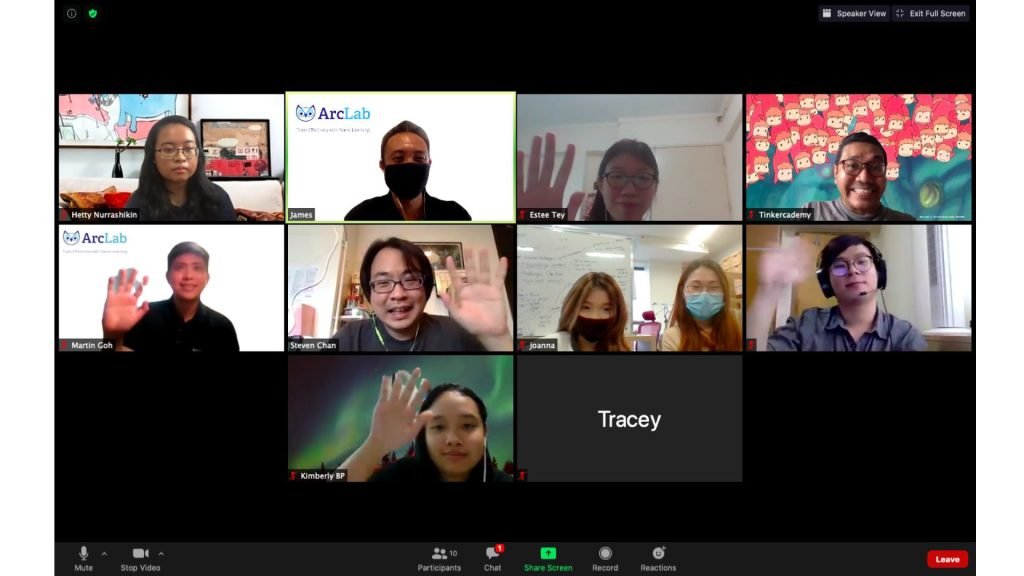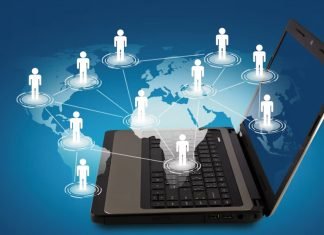James Chia, CEO, ArcLab discusses the need and significance of nano learning for employee development and productivity.
1. Tell us about your role in ArcLab.
“I’m Co-Founder & CEO of ArcLab – a mobile learning L&D SaaS platform empowering companies to create effective training, sent directly to staff phones, in bite-sizes, in the flow of work.
I help lead ArcLabs strategy, product & growth – helping organisations globally to embrace lifelong learning for their workforce.
Day-to-day – I speak with our customers to understand their pain points and how best ArcLab can support them, and reach out to prospects whom ArcLab can serve. Internally, I help with digital marketing, design products and features, help with build and code testing, provide support and the resources our team needs, and get out of the way so they can work their magic.”
2. Can you tell us about your journey into this market?
“As innovation quickens and our attention spans shorten, the need for continuous education and training to stay relevant is more urgent than ever. But training is often cumbersome and expensive, and not built into enough organisations’ cultures. I started out by speaking to individuals, trainers, companies, policy makers that we knew. I think at least 50 conversations in 2 months. I narrowed on a few points:
Training was important, but individuals find it hard to commit time and funds.
Companies find that training made staff spend too much time away, reducing productive time and topline.
Trainees find it hard to pay attention for extended periods. They were also on their phones most of the time.
Refreshing training content can be expensive and time-consuming for companies.
I saw scope to use good design and tech to help organisations solve these common problems. We tested the concept out through a simple proof-of-concept built in 6 weeks. This was back in 2017. Incredibly, there was usage and I gained confidence to continue and incorporate in 2018.
We distilled our learnings to build ArcLab – an easy-to-use web platform for creating bite-sized training, launching our MVP in late 2018, continuing to listen to user feedback and iterate and finally launched our full product in 3Q2019. Since then, we’ve been humbled to receive the trust of companies both ListCos and SMEs, and be featured in the inaugural SE Asia Ed Tech 50.
We continue to listen and improve, to help companies everywhere create effective training.”
3. How do you think technology is changing the HR Sector?
“HR has traditionally had a less-than-optimal reputation of being ‘old-school’, and incorrectly being viewed as ‘just administrators’. That can’t be further from the truth, and HR has really outdone themselves during this difficult period brought about by COVID, helping firms set up remote work arrangements, taking care of staff welfare, training, performance management etc. So increasingly we are seeing HR having a much more strategic input into business and strategy. This is definitely a much-needed development, with people being the most important resource of any business.
Technology has helped all functions of business do more with less and HR is no different. There is a multitude of really well-designed software and tech to help HR in various aspects, from recruitment to workforce management, and talent development.
In my opinion, more crucial than the tech is the data that HR now has at their fingertips, to understand the workforce, performance, skills and so much more. So every good HR tech platform would provide data & insight to HR to help them in their job. ArcLab is no different – we have a learning analytics dashboard that gives HR and L&D managers insight to staff’ learning, at a glance. This helps HR to make better decisions to support business objectives.
Last but probably most important, much as we think tech & digital (and I say this even with ArcLab as a tech platform) is the be-all-and-end-all, it really isn’t. We have to start with people. Understanding the workforce’s needs, what motivates them, and how to align with the goals of the organisation, with the right mindsets, right incentives, the right tool kit. That’s where support from the very top is needed, and change starts with our leaders first”
4. How has digitization eased the process of learning for employees, especially during times such as these?
“With the onset of COVID-19, Organisations now no longer question the value of digital learning as remote work becomes default.
With the workplace transformed, teams in many countries will work remotely (at least part of the workweek) and in split arrangements for the foreseeable future. Employers will need to think about how to adapt their businesses accordingly, to operate as an ongoing concern and (if we dare dream it) to grow.
Now more than ever, businesses need strong leadership to strategise, and a high-performing team to execute.
Teams need to be empowered with the right training, delivered efficiently and accessible remotely. So digital learning through platforms like ArcLab will be able to help firms do this fuss-free and cost-effectively.
Another good example is how firms can adopt digitalisation to provide continuous Performance Support to staff — Training Manuals, 101s, Primers, Standard Operating Procedures.
These can now be made digital so staff can easily access information for them to do their jobs AS-AND-WHEN they need it, on their mobile phones which they use everyday- to do their job better. This is especially important in today’s remote work environment where you can no longer gather staff in a training room, especially across country boundaries.
We’re blessed to have more users trust us during this difficult time for everyone. Our platform usage accelerated when countries started going into lockdown and remote working became default. Since Feb, ArcLabs monthly average sign-ups is 4-5 times higher than pre-Covid, and we’re humbled to have more users trust us.“
5. In what ways can nano learning lead to less disruption of an employee’s usual work schedule to upgrade knowledge?
“ArcLab believes that organisations and workforce both benefit from training in-the-flow-of-work. This reduces time away from the shop or factory floor, so less topline impact for businesses and less earnings impact for staff.
But Nano Learning is more than just cutting up 100-slide decks of traditional powerpoint slides into chunks. Good learning design is crucial; to make learning streamlined and efficient for staff to gain one learning point per module, absorbed and tested in 10 minutes or less. ArcLab’s Learning Designers stand ready to help our customers who might need advice, expertise or resources – to help them craft andragogically-sound learning modules for effective staff training.
In short – less time, less cost, more impactful training to help staff do their jobs better and achieve more for their organisations. Win-win”
6. What is the impact of bite-sized, anywhere on-the-job training on enhanced compliance training journey? By this question we mean to ask how bite-sized learning and on-the-job training (Which can be done anytime, anywhere) impact or affect the entire compliance training lifecycle.
“ArcLab’s learner analytics gives the HR and L&D manager full insight into when and how long their staff spend on each ArcLab module, and their performance for the modules’ assessment questions. This allows companies to track training hours, towards regulated training requirements.
ArcLab’s NanoCred feature also allows organisations to award skills badges to recognise mastery and have them mapped to regulatory training frameworks.
All this is done without complicated implementation or setup, allowing organisations to adhere to training compliance needs, and without a huge team. This frees up resources for companies to invest more in other areas of the business.”
7. What are the pain points of traditional corporate learning and why are companies beginning to prefer e-learning over in-person workforce training?
“Traditional workforce training today is front-loaded when staff join, meaning staff have no context when they are trained, and can’t find it when they need it. Training is expensive & time-consuming. It’s also logistically-intensive, disruptive to work and requires gathering many people in a small room. This is obviously no longer feasible with the onset of COVID.
Additionally, while there are many good trainers, there are also many ‘training’ sessions that are also no more than ‘talking head’ sessions with the trainer more focussed on delivering the material then the trainees’ learning. So you had a risk of inconsistent training and differing standards.
Digital and mobile learning helps us solve this problem – helping employees learn in the flow of work, receive uniformly good training that’s not trainer specific, and get good learner analytics data to see who’s learnt the material, who hasn’t, and adopt the necessary interventions for staff who need it.”
8. Can you explain to us in detail about Learner Analytics?
“Training is not for training’s sake, but to translate to better outcomes for organisations. Here’s a sample of the data that we track on the ArcLab dashboard – we get to see time spent on modules, learning performance, a leaderboard – who did well, who needs help. And we can drill this down to staff level -> and do the necessary interventions.

On this, I’m glad to learn from the expertise and experience of our Advisory Board Member – Professor Karin from SIT, Deputy Director of SIT’s Centre for Learning & Assessment Development (CoLEAD), who’s been a great sounding board as we design ArcLab’s learner analytics.
One thing we also think is important is for learning data to be studied with work performance data. So if you’re in sales – sales data; in ops – ops data. ArcLab has an open API framework, and we’re building integrations to be that data hub, or even a spoke in a data hub that you have. We’re flexible to work with organisations on this.
Yet performance attribution is multi-faceted, to be frank, because attribution to work performance and improvements tends to be multi-dimensional. But we can proxy some. Most organisations would invest more to get a more effective training, so the first thing to show would be either learner satisfaction or employer satisfaction, or level of confidence (in the absence of more “scientific” measures of effectiveness). Other general ones are: production time savings, drops in errors, drops in customer complaints etc.
Last but not least, ArcLab also approaches it from a customer-centric perspective, and what we like to do is to work backwards from the business objectives. What they deem as important in determining ‘improved’ job performance. And we can then structure that study and attribution to learning, adjusted for time & experience.”
9. How can bite-sized information presented in multimedia enhance learning?
Rich media and interactivity have been proven to increase learner engagement and knowledge retention, and is just an effective way to convey learning points. A very simple example is how we often search on Youtube when we want to find a recipe to cook or bake, and watch tutorial videos to figure how to install, make or fix something in our homes.
ArcLab allows our training content creators to directly embed videos in our learning modules, given a rich, seamless and in-the-flow learning experience. But to take one step back, creating a good learning video is also essential. So 30-minute ‘talking head’ videos may not be the best way. This requires us to be clear what we want to convey – ideally one learning point per video and to keep it short and punchy. We can achieve similar effects through good pictures and infographics.
The underlying philosophy is to understand our learners and work backwards to help them achieve learning goals. In this way – the multimedia can then be a great training aid”
10. How does ArcLab provide the tools for organizations to curate and fully own unique and interactive content that helps their workers?
“Our focus is on empowering users to use ArcLab to create that unique, interactive learning experience for staff. If we find great training videos on Youtube or Vimeo, these can also be directly embedded into ArcLab modules.
At ArcLab, our goal is to build the World’s Simplest Learning System. In fact, much of our product meetings is to decide what NOT to build, as we don’t want to add a lot of clunky features that don’t solve users’ needs – which really is to create, deliver and track training effectively.
What we’ve done at ArcLab is to make our learning platform seamless to adopt, both for the HR, L&D manager, and the staff accessing the training – in multiple languages to support different education & language proficiencies.
There’s no app to download, single-tap access (properly authenticated). In fact we can even have it so that staff can access ArcLab modules directly from within companies’ existing HRMS / LMS app on staff’ phones.
All of this is deliberate. By design.
So learning is done in the flow-of-work. Fuss-free. Employees don’t feel more strain than they need to, and easily get the knowledge and training to perform the core roles they were hired for.
So we work really hard to make our platform as simple to use as possible, as simple as any consumer app on our phones. There’s no coding needed, no fuss. Anyone who can use Microsoft Powerpoint can use ArcLab.”
11. How do you prepare for an AI-centric World?
“AI is already in much of our lives. We expect AI (and technology in general) to keep improving and making redundant a fair bit of today’s work. In fact, we’re building AI and ML into ArcLab – to increase the level of automation and reduce the work needed by HR and L&D to create training.
Yet, as COVID-19 has shown us, in actual fact, a lot of what we term as ‘menial’ work can’t easily be done remotely. Much of the people-facing work, done by our healthcare heroes, our dedicated educators, our counsellors etc. These can’t be easily automated or ‘AI-ed’ away.
So there’s still a need for a competent, core workforce in the workplace, on the shop or factory floor – that still needs to be trained, continuously as knowledge cycles shorten. That’s ArcLab plays a crucial role, to help create targeted bites-sized training, delivered fuss-free to workforces regardless of where they are.”
12. What are the major developments you are planning, in recent times?
“Our goal now is to scale growth & distribution in Singapore and beyond, and continue to build out ArcLab to solve more of our users’ needs. We’re grateful to have raised funding even during the pandemic, and we’re excited to tap on the network and expertise of our investors.
On the product front, we will keep learning from our customers to see how we can best support them – introducing more workflow automations, to make creating effective training on ArcLab even more fuss-free than before.
On the growth front, we will continue to work hard to serve customers locally and are seeing where else we can help. We recently signed a channel partnership with a company in Hong Kong, and in discussions with a company in Japan. A little further down the road, we also have ambitions for bringing ArcLab further, to Europe as a next port-of-call – and in discussions with a potential partner with Italy and UK
Our core vision remains to build the World’s Simplest Learning System – to Upskill the World’s Deskless Workforce to help Every Organisation Achieve More. If that resonates with you & your organisation, we’d be delighted to work with you.”
13. Can you tell us about your team and how it supports you?
“We’re an extremely lean team, but we work smart and hard to achieve the most we can.
Our CTO Steven is responsible for the magic that we know as the ArcLab platform. Steven has a strong background in technology, having worked at PayPal in senior software engineering roles. He’s also co-founder of education & technology firm Tinkertanker, ArcLab’s first investor.
We have Estee our Software Engineer working with Steven – to make ArcLab even more magical, and Martin our Learning Designer (with our Associate Learning Designers Carolynne & Ariff) who work with customers to co-design & develop their mobile learning programmes and modules. We’ve also been blessed to work with many awesome interns in the past 2 years who helped us lay the foundations of ArcLab.
ArcLab is also advised by leaders in HR, L&D and academia – Hwee Ling, Sam, Bella, Prof Karin & Kenneth – who provide their perspectives and advice I tap on. We also lean greatly on the experience and network of our investors Bisk Ventures (George) of the US and Spaze Ventures | EduSpaze (Alex, David & Niko) from Singapore.
To sum up, 1+1 >2 and we can leverage each individual’s strengths to make ArcLab better and scale our impact to Upskill the World’s Deskless Workforce”
14. What movie inspires you the most?
“The Rocky series by Sylvester Stallone. Rocky’s story is about a smaller-sized boxer who overcame bigger boxers than himself by training harder than everyone else. He also loved his wife and family very much. That’s a good way to live life so I always hope to take lessons from Stallone’s Rocky.
Also, I’m a big supporter of underdogs like Rocky (which is why I’ve never supported the ‘fashionable’ football teams but instead chose to follow Tottenham Hotspur), and it’s impacted the way I lived my life – to look out for the little guy who has less resources, rather than blindly flock to where the hype, attention or money is.
Life may be a little different that way but I’d like to leave the world a better place than how I found it, so serving the underserved is really important to me.
15. We have heard that you have a very joyful work culture, we won’t mind having a look at some of the pictures?
“Unfortunately not many pictures as we only started building the core team this year and COVID prevented us from gathering everyone together. We have our one ‘group picture’ here 😅”

16. Can you give us a glance of the applications you use on your phone?
“I use a 5-year old 16GB iPhone 6S.
Besides the apps that came installed with the phone (I’m a big fan of Notes to pen reminders to myself and I use the Mail app, naturally), the apps that i installed are mainly for work – productivity & communication apps like Slack, Readdle Calendar etc, and since COVID hit us – video conferencing. I’m a rather simple, low-maintenance person. I don’t stream video, listen to music or game on my phone (honest). I do spend some time reading on the phone when I’m on the go, and for that the Safari browser does the trick.

People have asked me why I don’t get a newer, higher-spec phone. The reason is many of our users who are rank-and-file workers don’t have the latest high-end phone. So the acid test for ArcLab is whether our learning modules remain light enough to run on my 5-year old phone’s mobile browser. The answer has always been yes.
We’re building ArcLab to be the World’s Simplest Learning System – it’s an inclusive philosophy so that even those without high-end phones can access learning easily. Because upskilling shouldn’t only be for our rich or well-resourced, but for everyone.
That will always be ArcLab’s guiding light.”
For more such Updates Log on to www.hrtechcube.com

James Chia CEO, ArcLab
James Chia is the CEO and Co-founder of ArcLab. ArcLab is a Mobile Learning SaaS platform - empowering organisations to upskill & train deskless workforces effectively, through creating & delivering targetted bite-sized knowledge to teams digitally, on demand.













